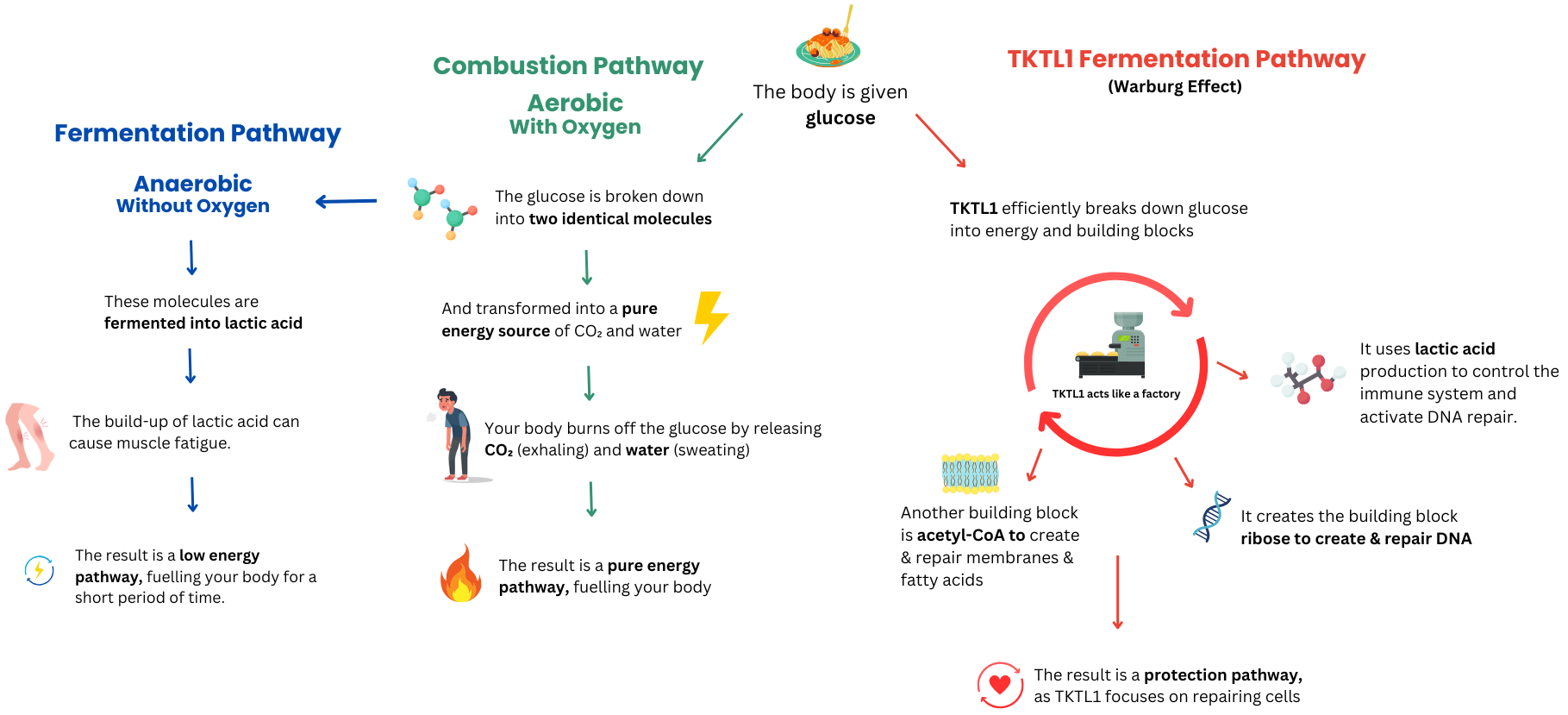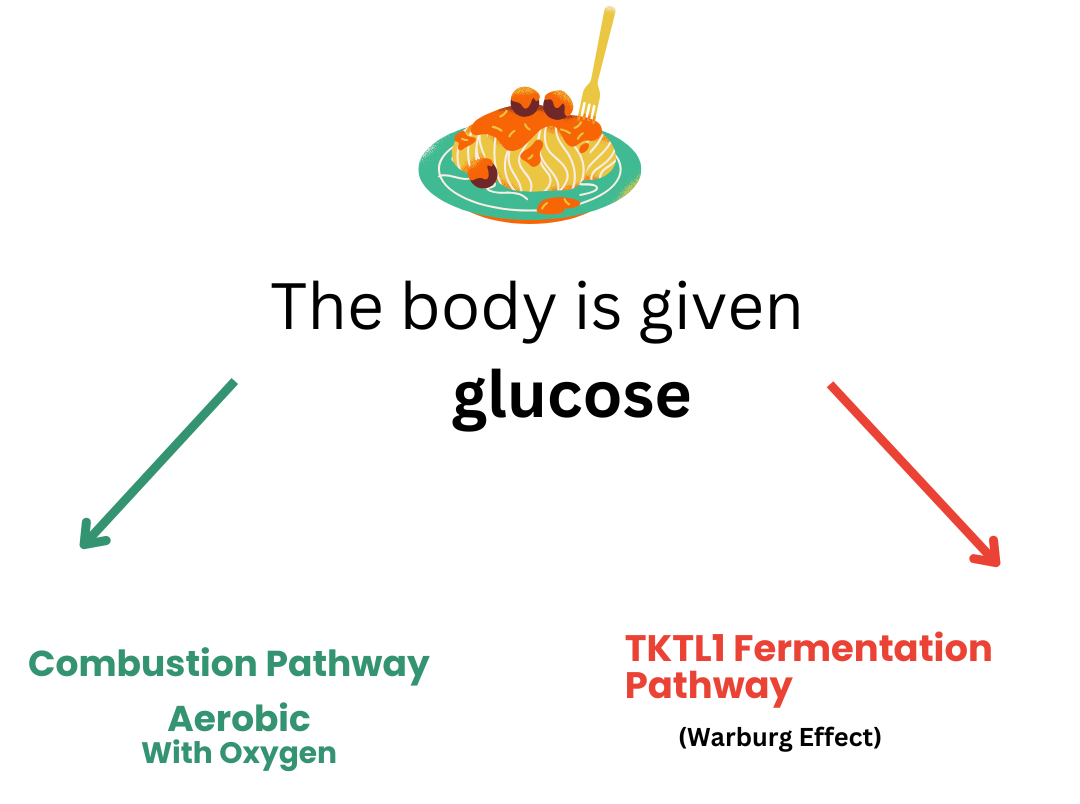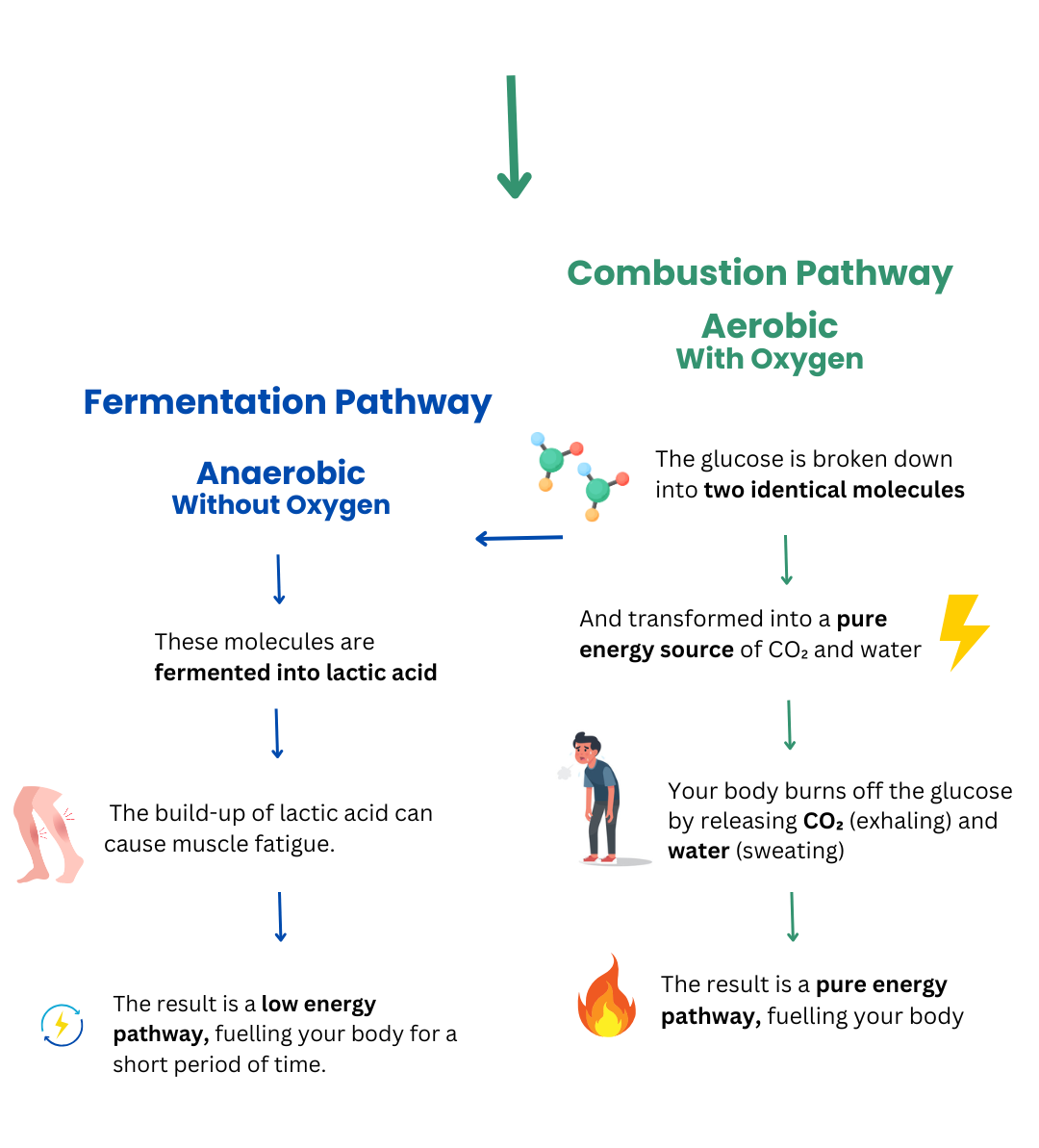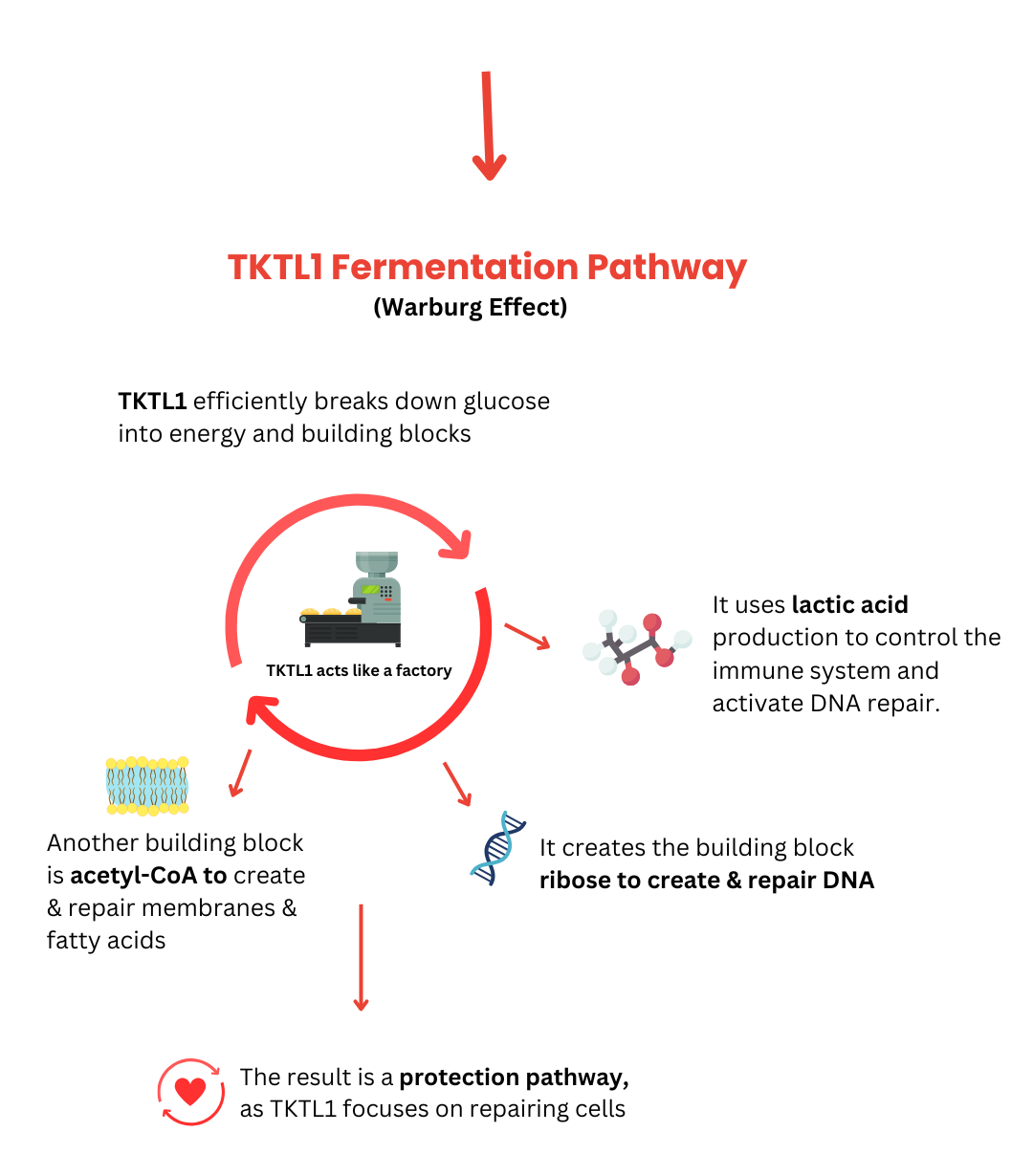What is Isomaltulose?
Isomaltulose is a double sugar (disaccharide) and consists of the same components as conventional household sugar – glucose and fructose.
However, isomaltulose has a lower glycaemic index which helps support a healthy metabolism. Isomaltulose helps enable a safe and extended delivery of energy to the body without spiking blood sugar levels.
Isomaltulose is naturally derived from honey and sugar cane juice. Even though isomaltulose is composed of one glucose molecule, and one fructose molecule (like household sugar) its special design allows our body to react differently.
It takes our digestive enzymes much longer to break down isomaltulose, significantly slowing the release of glucose and fructose.
This slower release supplies us with energy over a longer period of time and prevents high blood sugar levels.
Isomaltulose is about half as sweet as classic sugar (60% of sweetness compared to classic sugar).
Isomaltulose at a glance
- Prevents high blood glucose levels
- Low to moderate glycaemic Index
- Tooth-friendly
- Prevents and inhibits insulin resistance
- Provides steady, long-lasting energy
More and more independent accredited research highlights additional benefits of isomaltulose, including its ability to reduce inflammation.

What makes Isomaltulose special
Easily caramelises & perfect for baking
Tooth-friendly
Balances blood sugar levels

Balance Blood Sugar Levels
Isomaltulose is different from classic sugars because it is a fully digestible, slow-release sugar. It provides the body with the long-lasting energy the body needs, while still allowing for a lower impact on blood sugar levels and insulin release.
This helps support a healthy metabolism that favours fat-burning and healthy weight management.
Consuming foods high in classic sugars often lead to an insulin surge, which slows fat oxidation and causes inflammation. Using isomaltulose instead of classic sugars supports more efficient fat burning because insulin levels are lower.
These beneficial qualities of isomaltulose explain why it has a very low glycaemic index. Low GI foods keep blood sugar levels stable, and help you feel full for longer. Isomaltulose has a low to moderate GI of 32, which is 51% less than table sugar.
The European Food Safety Authority (EFSA) has reviewed studies on isomaltulose and found the results to be extremely positive.
“Consumption of food & drinks containing isomaltulose instead of sugar, induces a lower blood glucose rise compared to sugar containing food & drinks.”
What does the science say about isomaltulose?
“Consumption of foods/drinks containing isomaltulose instead of other sugars induces a lower blood glucose rise after their consumption compared to sugar-containing foods/drinks.”
Consumption of foods/drinks containing isomaltulose instead of other sugars contributes to the maintenance of tooth mineralization.”

-
 Isomaltulose has a low glycaemic index, which means that it is absorbed slowly by the body, leading to a gradual and sustained supply of energy.
Isomaltulose has a low glycaemic index, which means that it is absorbed slowly by the body, leading to a gradual and sustained supply of energy.
-
 Isomaltulose can enhance cognitive performance and memory, possibly by improving blood flow to the brain and reducing inflammation.
Isomaltulose can enhance cognitive performance and memory, possibly by improving blood flow to the brain and reducing inflammation.
-
 Isomaltulose may help to regulate blood sugar levels and reduce the risk of type 2 diabetes. It has also been shown to reduce triglyceride levels, which can lower the risk of cardiovascular disease.
Isomaltulose may help to regulate blood sugar levels and reduce the risk of type 2 diabetes. It has also been shown to reduce triglyceride levels, which can lower the risk of cardiovascular disease.
-
 Isomaltulose has been shown to have anti-inflammatory properties, which may protect cells from damage caused by inflammation.
Isomaltulose has been shown to have anti-inflammatory properties, which may protect cells from damage caused by inflammation.
-
 Isomaltulose has been shown to have anti-inflammatory properties, which may protect cells from damage caused by inflammation.
Isomaltulose has been shown to have anti-inflammatory properties, which may protect cells from damage caused by inflammation.
-
 Isomaltulose promotes the growth of beneficial bacteria in the gut, specifically bifidobacteria and lactobacilli, which play a crucial role in gut health. It also improves intestinal barrier function, reducing inflammation and preventing the entry of pathogens and toxins into the bloodstream.
Isomaltulose promotes the growth of beneficial bacteria in the gut, specifically bifidobacteria and lactobacilli, which play a crucial role in gut health. It also improves intestinal barrier function, reducing inflammation and preventing the entry of pathogens and toxins into the bloodstream.
-
 Isomaltulose does not have a significant impact on the immune system but does not cause inflammation, which can support immune function. In addition, it may have a prebiotic effect that indirectly enhances immune function through promoting the growth of beneficial gut bacteria.
Isomaltulose does not have a significant impact on the immune system but does not cause inflammation, which can support immune function. In addition, it may have a prebiotic effect that indirectly enhances immune function through promoting the growth of beneficial gut bacteria.
-
 Isomaltulose is slowly metabolized, providing sustained energy without causing spikes in blood sugar or insulin. This can help improve metabolic health and insulin sensitivity over time. In addition, it may help reduce body fat accumulation and promote weight loss by reducing hunger and increasing satiety.
Isomaltulose is slowly metabolized, providing sustained energy without causing spikes in blood sugar or insulin. This can help improve metabolic health and insulin sensitivity over time. In addition, it may help reduce body fat accumulation and promote weight loss by reducing hunger and increasing satiety.
-
 Isomaltulose has a low glycaemic index and does not cause a significant insulin response. This makes it a better choice for liver health than high glycaemic index sugars. Studies in animals have also shown that isomaltulose can improve liver function and reduce inflammation.
Isomaltulose has a low glycaemic index and does not cause a significant insulin response. This makes it a better choice for liver health than high glycaemic index sugars. Studies in animals have also shown that isomaltulose can improve liver function and reduce inflammation.
-
 Isomaltulose is not fermented by oral bacteria and does not promote tooth decay. It can also promote the production of saliva, which helps maintain oral health.
Isomaltulose is not fermented by oral bacteria and does not promote tooth decay. It can also promote the production of saliva, which helps maintain oral health.
How does the calorie content of Isomaltulose compare to sucrose?
Using the classic ‘a calorie is just a calorie model’ (developed in 1848) it’s hard to see the benefits of isomaltulose, but when we revise the model to reflect reality, we can see why it energises us very differently.
Even though isomaltulose consists of the same two sugar sub-units as sucrose (glucose and fructose) it impacts the body differently.
Sucrose has an α-1.2-glycosidic bond which is rapidly broken down, while isomaltulose takes longer to break down, because it has an α-1.6-glycosidic bond and a lower glycaemic index.
| Classic Calories | Fermenting Calories | Oxidising Calories | |
|---|---|---|---|
| Isomaltulose | 4 kcal / g | 4 kcal / g | 4 kcal / g |
| Sucrose | 4 kcal / g | 4 kcal / g | 4 kcal / g |
Oxidising (using oxygen to release pure energy)




Making Energy from Metabolism
- Isomaltulose is fully metabolised in the small intestine.
- The two sugar sub-units are slowly split apart by an enzyme.
- Digestion of isomaltulose takes longer compared to sucrose.
- The slow enzymatic splitting delays absorption of the sugar.
Benefits
- The slower energy release inhibits spikes in blood sugar and insulin.
- The prolonged blood sugar response curve also prevents dips in energy.
- The steady energy release supports a more balanced metabolic response.
- Enabling a long-lasting energy supply.
- The glycaemic index (GI) is 32 which is 51% less than table sugar.
- Isomaltulose tastes about 50-60% as sweet as table sugar.
Isomaltulose’s unique metabolic effect makes it ideal for:
Dental
Children
Sports
Frequently asked questions
Is isomaltulose safe?
Isomaltulose is generally considered safe for most people to consume. However, consuming large amounts of it may cause gastrointestinal discomfort.
Is isomaltulose good for diabetics?
Yes. Isomaltulose does not spike blood sugar levels or insulin levels. Diabetics can use isomaltulose without worrying about their blood sugar levels spiking.
Can isomaltulose be used in cooking and baking?
Yes, isomaltulose can be used in cooking and baking. Heating or baking isomaltulose creates a mild caramel flavour, which makes it great for baking or desserts (e.g. crème caramel). Dr Coy’s Sugar Mix for Baking includes isomaltulose and is specially formulated to perform identically to classic sugar when baking. It can be used as an equal substitution for all your favourite recipes.
Does isomaltulose raise blood sugar levels?
Isomaltulose is a low glycemic index sugar, which means it does not cause a significant increase in blood sugar levels after consumption.
Does isomaltulose raise insulin levels?
Isomaltulose is metabolized more slowly in the body, which means it does not cause a significant increase in insulin levels.
Is isomaltulose keto-friendly?
Yes, isomaltulose is suitable for a ketogenic diet as it does not cause blood sugar spikes and encourages fat mobilization and utilization, which are primary goals of the ketogenic diet.
Is isomaltulose fructose-free?
No, isomaltulose contain fructose, and it gradually releases fructose into the bloodstream as it is broken down. It is not suitable for people who are sensitive or intolerant to fructose.
Is isomaltulose lactose-free?
Yes, isomaltulose contains no lactose.
Is isomaltulose gluten-free?
Yes, isomaltulose does not contain gluten (but could contain traces depending on manufacturing processes).
Is isomaltulose safe for cancer patients?
Isomaltulose represents a source for glucose and therefore should be consumed only in small amounts in a recommended dosage for cancer patients.
What does isomaltulose taste like?
Isomaltulose has a taste and texture similar to household table sugar, but it is slightly less sweet.
Is isomaltulose healthy?
Isomaltulose is a healthier sugar alternative compared to table sugar as it has a lower glycaemic index, does not cause cavities, and provides sustained energy.
What is isomaltulose made from?
Isomaltulose is made from sucrose by rearranging its molecular structure through an enzymatic process.
Where can I buy isomaltulose?
The best way to incorporate isomaltulose into your diet is by using Dr Coy’s sugar mixtures. These mixtures have been scientifically developed to help lead a healthier lifestyle. Discover the full range of Dr Coy’s sugar mixtures from our partners.
Research & Resources
Further Studies
Low glycemic index diets are considered beneficial for blood glucose control in diabetes and overall metabolic health. Isomaltulose, a natural disaccharide derived from sucrose, is a prototype of low-glycemic index carbohydrates. It is widely used in various food applications and clinical nutrition feeds. This overview examines clinical trials on isomaltulose, including its impact on glycemia, fat oxidation, weight-loss maintenance, and pregnancy. The findings suggest potential advantages of isomaltulose compared to high glycemic index sugars and carbohydrates in these contexts.
This study compared the effects of orally ingested isomaltulose (ISO) and sucrose (SUC) during moderate intensity exercise. ISO showed lower exogenous carbohydrate oxidation rates and higher fat oxidation compared to SUC. Total endogenous carbohydrate oxidation was lower in the SUC trial. ISO had a lower plasma insulin response and a slower rate of digestion compared to SUC. These findings suggest that ISO may promote higher fat utilization and lower reliance on exogenous carbohydrates during exercise.
Like sucrose (table sugar), the natural disaccharide isomaltulose (PalatinoseTM) consists of glucose and fructose, but it is apparently more suitable for people with type 2 diabetes with regard to regulating blood glucose levels. The favorable metabolic effect of isomaltulose is due to the almost opposing release profiles of the gut hormones GLP-1 and GIP, a new study shows.
Oral diabetes-specific nutritional supplements (ONS-D) induce favourable postprandial responses in subjects with type 2 diabetes (DM2), but they have not been correlated yet with incretin release and subjective appetite (SA). This randomised, double-blind, cross-over study compared postprandial effects of ONS-D with isomaltulose and sucromalt versus standard formula (ET) on glycaemic index (GI), insulin, glucose-dependent insulinotropic polypeptide (GIP), glucagon-like peptide 1 (GLP-1) and SA in 16 individuals with DM2.
Dietary intervention for preventing postprandial increases in glucose level by replacing high-glycemic index (GI) carbohydrates with lower-GI carbohydrate has been proposed as a strategy for treating insulin-resistant metabolic disorders such as type II diabetes. In this study, we examined the effect of short-term replacement of starch with a low-GI disaccharide, isomaltulose, on insulin action in skeletal muscle. Male Wistar rats were fed isomaltulose for 12 h during their dark cycle.

